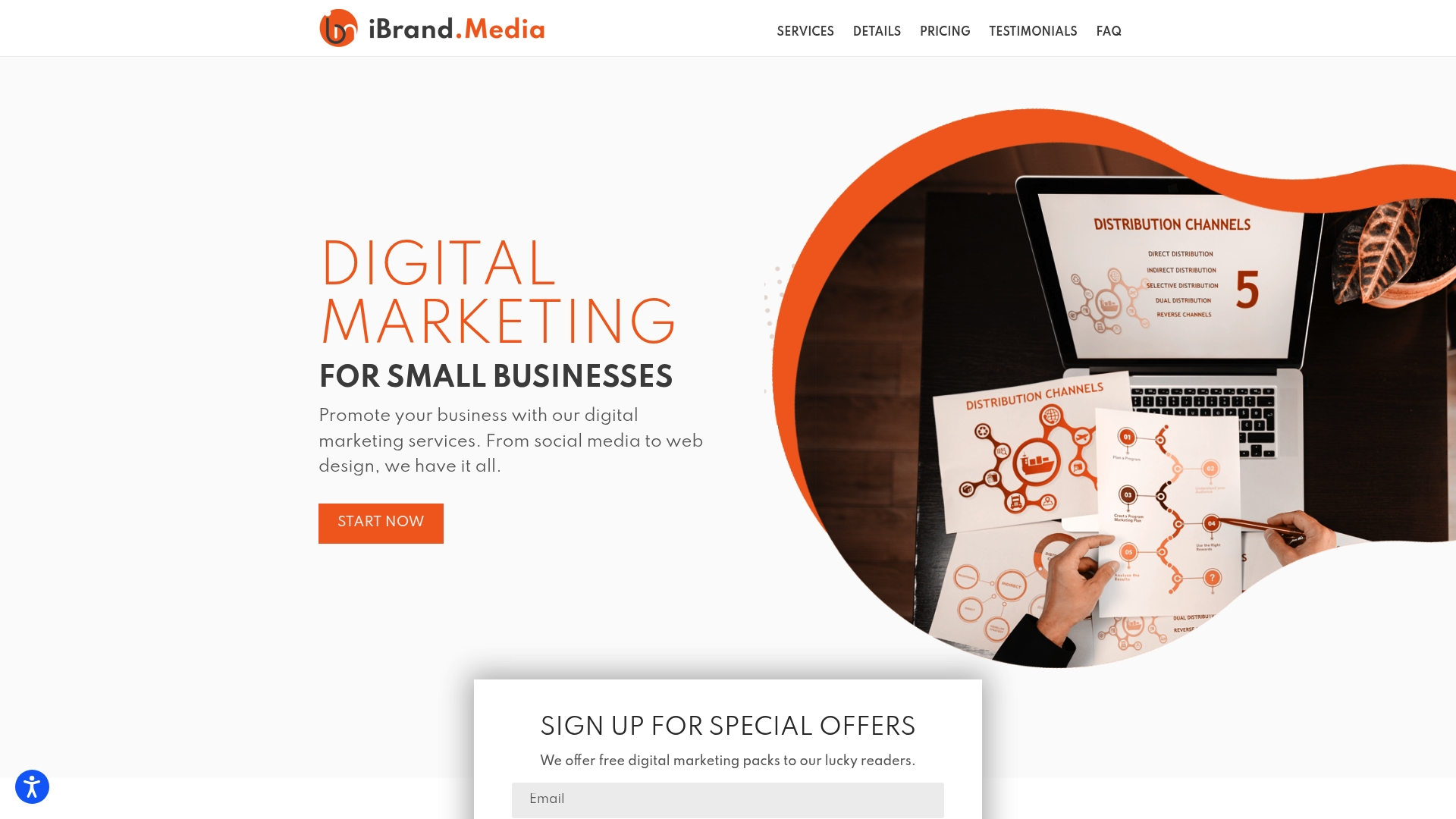Over eighty percent of american businesses now see blogging as a must-have part of their digital strategy. In a crowded online world, standing out and building trust takes more than just a flashy website. A business blog helps companies share real expertise, reach potential customers, and strengthen their industry reputation using clear and helpful content. This guide lays out how understanding the core principles of business blogs can give your american business a key advantage.
Table of Contents
- What Is A Business Blog? Core Principles
- Main Reasons Businesses Start Blogging
- How Blogs Boost SEO And Visibility
- Building Customer Trust Through Content
- Comparing Business Blogs Vs. Social Media
Key Takeaways
| Point | Details |
|---|---|
| Purpose of Business Blogs | Business blogs serve as platforms for education, engagement, and authority building, transforming websites into dynamic communication tools. |
| SEO and Visibility Benefits | Regularly updated blogs enhance search engine rankings and online visibility through relevant content and keyword integration. |
| Building Customer Trust | Consistent, valuable content fosters customer trust by showcasing genuine expertise and addressing real challenges. |
| Blogs vs. Social Media | Blogs allow for comprehensive content and authority establishment, while social media excels in quick interactions and immediate feedback. |
What Is a Business Blog? Core Principles
A business blog is a strategic online publishing platform designed to deliver valuable industry insights and engage potential customers directly through a company’s website. According to TechTarget, a business blog represents a regularly updated section of a company’s digital presence that provides informative content related to its industry, products, or services.
The core principles of an effective business blog revolve around three fundamental objectives: education, engagement, and authority building. By consistently sharing high-quality, relevant content, businesses can transform their websites from static digital brochures into dynamic communication channels that attract, inform, and convert potential clients. This approach helps establish credibility, demonstrate expertise, and create meaningful connections with target audiences.
Successful business blogs typically focus on addressing specific customer pain points, showcasing industry knowledge, and providing actionable insights. Key strategies include:
- Delivering content that solves real problems for your target audience
- Maintaining a consistent publishing schedule
- Writing in a conversational, approachable tone
- Integrating relevant keywords for search engine optimization
- Using compelling visuals and multimedia elements
To maximize impact, businesses should view their blog as more than just a marketing tool. Content Marketing: Everything You Need to Know suggests treating your blog as a strategic platform for building long-term relationships, establishing thought leadership, and driving organic traffic to your website. By prioritizing genuine value and audience-focused content, a business blog becomes a powerful mechanism for growth and customer connection.
Main Reasons Businesses Start Blogging
Businesses are increasingly recognizing blogs as powerful strategic tools for digital growth and customer engagement. According to TechTarget, companies initiate blogs primarily to drive website traffic, improve search engine rankings, and directly engage with potential customers. These objectives transform blogs from simple content platforms into sophisticated marketing instruments.
The core motivations behind business blogging extend beyond traditional marketing approaches. Brand positioning and thought leadership emerge as critical drivers, enabling companies to showcase industry expertise and differentiate themselves from competitors. By consistently producing high-quality, relevant content, businesses can establish credibility, build trust, and create meaningful connections with their target audience.
Key strategic reasons for starting a business blog include:
- Enhancing online visibility and search engine optimization
- Generating qualified lead opportunities
- Demonstrating industry knowledge and expertise
- Building long-term customer relationships
- Providing value through educational content
- Humanizing the brand and creating authentic connections
For small businesses seeking targeted growth strategies, 8 Content Ideas for Small Business Growth offers additional insights into leveraging blog content effectively. By understanding these fundamental motivations, businesses can transform their blogs from simple web pages into dynamic platforms for engagement, education, and sustainable growth.

How Blogs Boost SEO and Visibility
Blogs are powerful engines for improving a website’s search engine performance and online visibility. According to TechTarget, regularly updated blogs with relevant content systematically improve SEO by incorporating targeted keywords, increasing indexed pages, and attracting valuable inbound links. This strategic approach transforms blogs from simple content platforms into sophisticated digital marketing tools.
The SEO mechanism of business blogging operates through multiple interconnected channels. Each blog post creates a new indexed page for search engines, expanding a website’s digital footprint and providing additional opportunities to rank for specific keywords. By consistently producing high-quality, relevant content that addresses user queries, businesses can signal their expertise to search algorithms, thereby improving their overall search rankings and online credibility.
Key SEO and visibility strategies through blogging include:
- Creating content targeting specific long-tail keywords
- Developing internal linking structures
- Generating shareable, link-worthy content
- Improving website’s domain authority
- Increasing organic search traffic
- Establishing topical relevance in your industry
Understanding Why Your Business Needs SEO for Growth reveals that consistent, strategic blogging is more than just content creation—it’s a nuanced approach to digital visibility that can significantly transform a business’s online presence. By treating each blog post as a strategic asset, companies can effectively communicate their value proposition while simultaneously improving their search engine performance.
Building Customer Trust Through Content
Customer trust represents the cornerstone of successful business relationships, and strategic content creation emerges as a powerful mechanism for establishing this critical connection. According to TechTarget, providing informative and helpful blog content enables businesses to establish themselves as industry authorities, systematically fostering trust and loyalty among potential customers. This approach transforms content from a mere communication tool into a sophisticated trust-building instrument.
The trust-building process through content involves demonstrating genuine expertise, transparency, and commitment to solving customer challenges. By consistently sharing valuable insights, addressing common pain points, and presenting nuanced industry perspectives, businesses can position themselves as reliable partners rather than aggressive salespeople. This subtle shift creates a psychological connection where readers perceive the company as a knowledgeable resource genuinely invested in their success.
Key strategies for building customer trust through content include:
- Addressing real customer problems and challenges
- Providing transparent, unbiased information
- Sharing authentic case studies and success stories
- Demonstrating deep industry understanding
- Maintaining consistent, high-quality content
- Showing vulnerability and human elements of your business
Understanding Social Proof in Marketing: The Key to Trust highlights that trust-building is fundamentally about creating authentic connections. By approaching content as a relationship-building tool rather than a sales mechanism, businesses can cultivate lasting customer loyalty and transform casual readers into committed brand advocates.
Comparing Business Blogs vs. Social Media
Businesses today face a strategic choice between leveraging business blogs and social media platforms for digital communication. According to TechTarget, each channel offers distinct advantages: blogs allow for comprehensive content that improves search engine rankings and builds credibility, while social media platforms excel at quick updates and direct customer interactions. Understanding these nuanced differences is crucial for developing an effective digital marketing strategy.
The core distinctions between business blogs and social media platforms extend beyond simple content delivery. Blogs provide a controlled, in-depth environment where businesses can showcase deep expertise, publish long-form content, and establish thought leadership. Social media, conversely, offers rapid engagement, immediate feedback, and the potential for viral content distribution. These platforms serve different strategic purposes: blogs as comprehensive knowledge repositories, social media as dynamic interaction spaces.
Key comparative aspects include:
- Content Depth: Blogs (comprehensive) vs. Social Media (concise)
- Search Engine Performance: Blogs (high ranking potential) vs. Social Media (limited SEO impact)
- Audience Interaction: Social Media (immediate) vs. Blogs (structured)
- Brand Positioning: Blogs (authoritative) vs. Social Media (conversational)
- Cost of Maintenance: Social Media (low) vs. Blogs (moderate)
- Long-term Value: Blogs (evergreen content) vs. Social Media (ephemeral)
Top Benefits of Social Media Presence for Small Businesses 2025 suggests that the most effective strategies integrate both channels, using blogs for deep content and social media for amplification and direct engagement. By understanding each platform’s strengths, businesses can create a complementary digital communication ecosystem that maximizes reach and impact.

Elevate Your Business Growth with Strategic Blogging and Expert Support
Struggling to turn your business blog into a powerful tool for growth and customer trust? This article highlights the essential role of consistent, value-driven content in boosting SEO, establishing authority, and building lasting customer relationships. If you want to overcome challenges like low search visibility and weak engagement, it is crucial to implement tailored digital marketing strategies that complement your blog efforts.
Unlock the full potential of your business blog by partnering with a team that understands these key pain points. At Uncategorized | Ibrandmedia we specialize in creating personalized plans that combine effective SEO optimization, mobile-friendly web design, and social media management. 
Take action now to transform your blog into a growth engine. Visit ibrand.media to explore affordable services designed for small and medium businesses. Ready for quick results with ongoing support Visit ibrand.media today and start your journey toward stronger online visibility and genuine customer connections.
Frequently Asked Questions
What is a business blog?
A business blog is a strategic online platform that regularly publishes industry-related content to engage potential customers and improve a company’s digital presence.
How can a business blog improve SEO?
Business blogs enhance SEO by creating new indexed pages for search engines, integrating targeted keywords, and attracting inbound links, which collectively improve search engine rankings and online visibility.
Why should businesses invest in blogging?
Investing in a business blog helps increase website traffic, build brand authority, generate leads, and foster long-term customer relationships through valuable and informative content.
What are the key components of an effective business blog?
An effective business blog should focus on delivering valuable content, maintaining a consistent publishing schedule, adopting a conversational tone, optimizing for search engines, and using visual and multimedia elements.
Recommended
- Business Blogging Benefits: Complete Expert Guide | Ibrandmedia
- 7 Essential Networking Tips for Small Business Growth | Ibrandmedia
- Understanding Why Your Business Needs SEO for Growth | Ibrandmedia
- 8 Content Ideas for Small Business Growth | Ibrandmedia
- What Is Organizational Growth? Complete Overview | Colossus Systems
- Unlocking Business Growth with Odoo CRM: 6 Key Benefits for CEOs and SMBs | Singleclic

Recent Comments